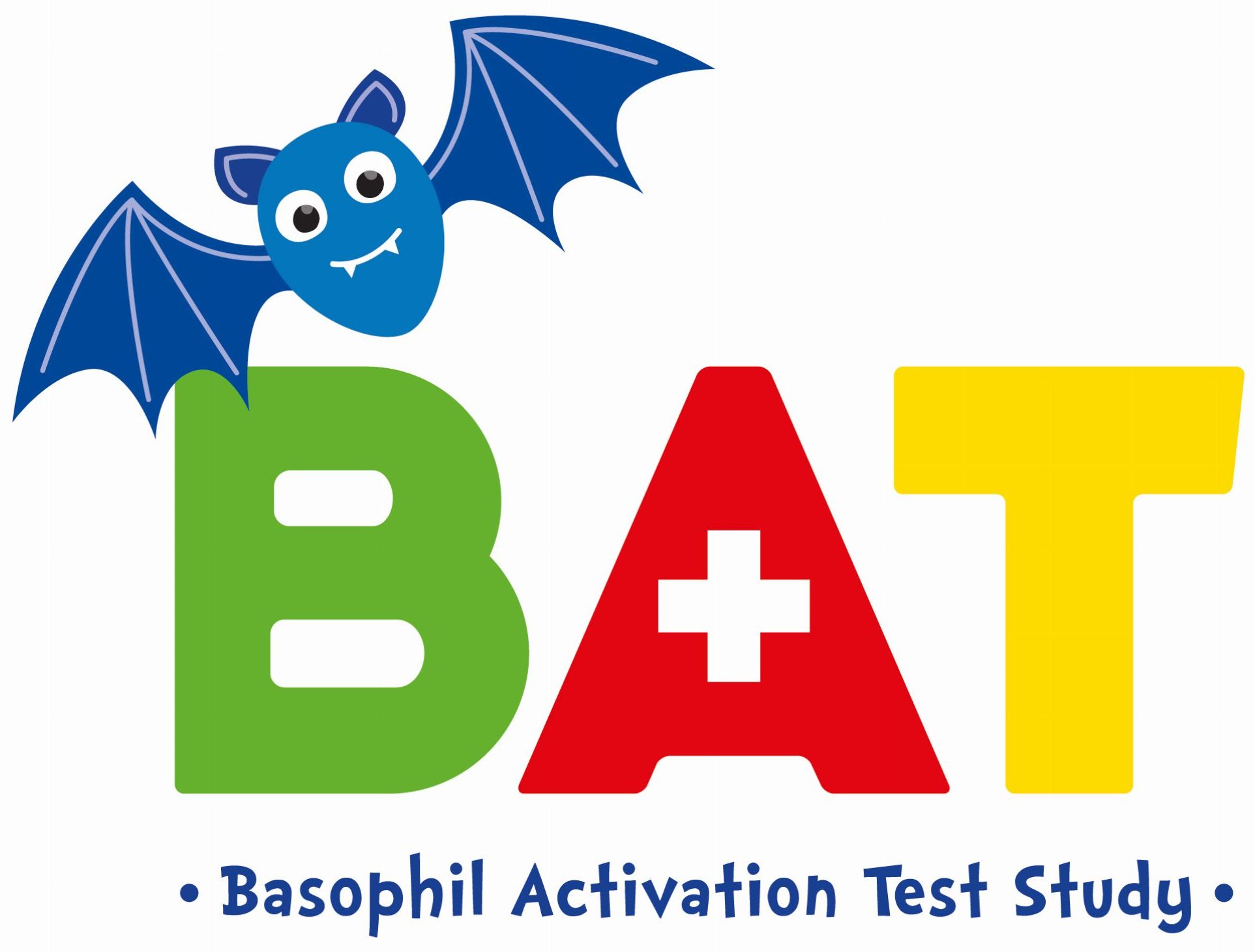What is a Food Challenge?
A food challenge is the most accurate way for us to confirm whether your child is tolerant or allergic to a particular allergen (e.g. cow’s milk, egg, sesame, cashew nut). The challenge will involve giving your child the food we are testing to eat, in a controlled way, in a safe setting. The challenge is performed under medical supervision because there is a risk your child may have an allergic reaction. These reactions are generally mild and will be treated in the early stages with appropriate medications.
The type of food challenge your child will have will depend on their age. Infants under 12 months of age will have an open incremental challenge and children over 12 months of age will have a double blind placebo controlled challenge.
Open Incremental Challenge:
This is the most common type of food challenge used in clinical practice to confirm whether or not a child is allergic to a particular food. For the BAT 2 study, it will be used for infants aged 6-12 months. The open incremental challenge involves giving your child a set amount of the challenge food (e.g. cow’s milk, egg, sesame, cashew nut) to eat, in gradually increasing portions. The challenge food will be free from any other foods your child may be allergic to and will be a suitable texture and consistency for your child’s age and eating ability. It is called an ‘open’ challenge because everyone (child, parent and clinical team) will know that the challenge food contains the allergen being tested. Once all the challenge food portions have been eaten, there will be an observation period of at least 2 hours. If there is no allergic reaction during this period, your child will be considered tolerant of the challenge food. Information will then be provided on how best to introduce it into their diet on a regular basis. If your child has an allergic reaction during the food challenge, this will be treated in the early stages with appropriate medications.
The whole open incremental challenge will last approximately 4 hours; including a 2 hour observation period. If your child has an allergic reaction during the challenge, they will need to be observed for a minimum of 2 hours after their symptoms resolve. Therefore, you should plan to be with us for a whole day but you may finish sooner.
Double blind placebo controlled food challenge (DBPCFC):
This type of challenge is the ‘gold standard’ challenge used in research to confirm whether or not a child is allergic to a particular food allergen. In non-research clinical practice it is sometimes also used for children who are very anxious about eating the potentially allergenic food. If they are anxious or worried about eating the challenge food it can sometimes make it difficult for medical staff to be sure that any reported symptoms are due to a true allergic reaction rather than due to the fear of eating the allergenic food. For the BAT 2 study, this type of challenge will be used for all children over 12 months of age.
The double blind placebo controlled food challenge involves giving gradually increasing doses of either a ‘blinded’ challenge food (i.e. contains hidden allergen such as milk, egg, sesame or cashew) or a ‘placebo’ food (i.e. looks and tastes the same as the ‘blinded’ food but doesn’t contain any hidden allergen). With this type of challenge, no one (including the child/parent and research team looking after your child) will be able to see whether or not the challenge food contains the allergen. This is why we say it is ‘double blinded’.
Once your child has completed the ‘blinded’ part of the challenge they will usually be given an ‘open’ dose of the food to eat to confirm that they can tolerate the food. The ‘open’ dose will be given in a form and portion size that is typically eaten by children of your child’s age. Your child will be offered a choice of challenge foods that we have prepared so that they can select the one they would most like to eat. We will ensure that all challenge foods provided are free from any other foods your child may be allergic to. Occasionally, we may ask you to bring with you some of the foods your child likes (e.g. pureed fruit, milk, yogurt or their dairy free substitutes,) to mix with the challenge food to help them eat it.
Once all the challenge foods have been eaten there will be an observation period of at least 2 hours. If there is no allergic reaction during this period, your child will be considered tolerant of the challenge food. Information will then be provided on how best to introduce it in to their diet on a regular basis. If your child has an allergic reaction during the food challenge, this will be treated in the early stages with appropriate medications.
The whole double blind challenge will last approximately 6 hours; including a 2 hour observation period. If your child has an allergic reaction during the challenge, they will need to be observed for a minimum of 2 hours after their symptoms resolve. Therefore, you should plan to be with us for a whole day but you may finish sooner. Very occasionally, the outcome of a DBPCFC is unclear or inconclusive. If this is the case, you may be asked to return at a later date to repeat the challenge over 2 further days.

